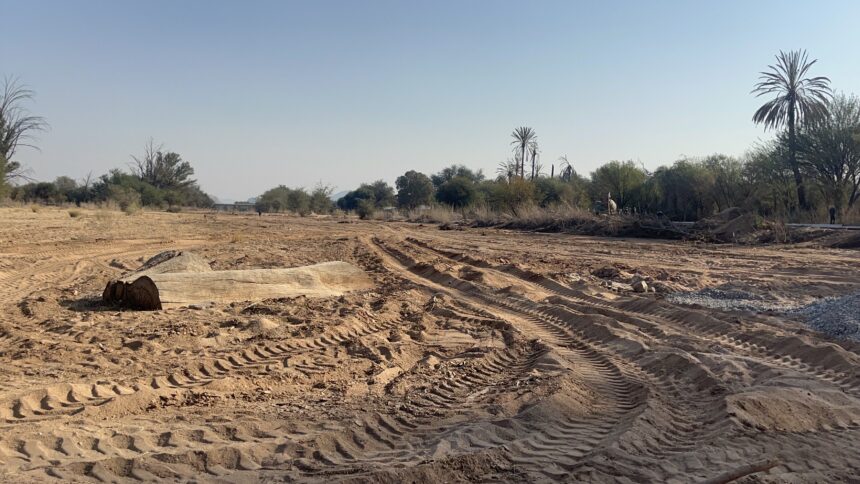OMARURU – Urgent intervention is needed to avert a crisis in Omaruru, where the town is grappling with severe water shortages.
The municipality is having to contend with low water pressure, exacerbated by inadequate rainfall and the poor state of its infrastructure.
Omaruru is one of the towns which operates its own bulk water supply scheme. All its water is abstracted from the Omaruru River through boreholes. Mayor Vincent Kahuua highlighted the dire situation recently, painting a bleak picture.
If the situation persists, taps in the town could run dry by October, he said in no uncertain terms.
“The current water infrastructure, designed for about 4 000 residents, is no longer capable to supply our population, which was put at around 10 000 by the latest census. We urgently need to enhance our water capacity,” Kahua said.
He added that the town currently has 12 boreholes, eight of which are operational, and four are on reserve. Two additional boreholes will be drilled to meet the needs.
The Omaruru River – the town’s primary water source – is also severely impacted by approximately 18 small dams along its course.
“These dams, though small, hold substantial water capacity, blocking the river’s flow to the sea.
We need assistance from the ministries of agriculture and environment to engage farm owners to address these obstructions,” he told New Era.
The mayor said the water crisis also hampers development projects, including plans for a steel factory earmarked for the town.
“The council has allocated land for this project, pending ministry approval. We cannot lose this investor, as that would assist us in addressing unemployment in the town. However, they will need to sink their own boreholes to ensure sufficient water supply, and prevent us losing them as investors,” the mayor said.
Farmers
Adding his voice on the impending crisis, Omaruru constituency councillor Erenst Wetha said farmers cannot be blamed for the water shortage. They, too, are affected. “The shortage is not due to blockages by farmers, but because we haven’t received sufficient rainfall for some years. Farmers in our area are struggling too. Some even had to let go of workers, and others came here begging for water,” Wetha said.He urged the government to assess the situation to ensure that both farmers and residents have sufficient water during the ongoing drought.
Victims
Already, some people have suffered the effects of the looming crisis, as at least 24 employees at a crop farm in the area have been laid off.
Vegetable farmer in the area Gunnar Waldschmidt was forced to lay off workers due to water challenges, he said. Wetha said the last time the river flowed sufficiently to replenish the groundwater reserves was in 2020. “Since then, it has not flowed as much as we would have liked. If the river flows proficiently, the groundwater reserves will last for two to three years. We are now in the fourth year, which is why we are facing this crisis,” he told New Era.
Waldschmidt, who served on the Omaruru Water Basin committee for 15 years, said allegations of dams being built on private farms are not new. “We had these allegations before, and we inspected the area. There was even a study done by the University of Namibia on how much dam construction affects the flow of the river. They concluded that in normal rainy seasons, it should not have an effect. However, it could affect the river flow in less rainy seasons. Hence, there is some merit to these claims,” he said.
He added that those claims should be investigated to see who has a permit from the ministry to construct dams on the river.
Waldschmidt continued that one must apply to the ministry of water for a permit if the dam is over a certain size or above 20 000 cubic metres.
“The biggest problem we have is the control of the groundwater reserves. Every time you use water along the river and irrigate less than a hectare or consume less than 18 000 cubic metres, you do not need to apply for a permit. If you want to consume more than that, you must apply for a permit, and submit monthly readings to the ministry for control purposes.
“We might not know how much water is consumed or misused. The water issue is out of control, and what is more concerning is that the municipality wants to expand rapidly, promising new, bigger developments without sufficient water resources. Everyone needs to come back to the table to discuss solutions. The main problem is that the river has not flowed for four years. I would not call it climate change. It was not as much of an issue before because there were fewer people relying on the river. Now, we have a significant problem due to the growth of the town.”


